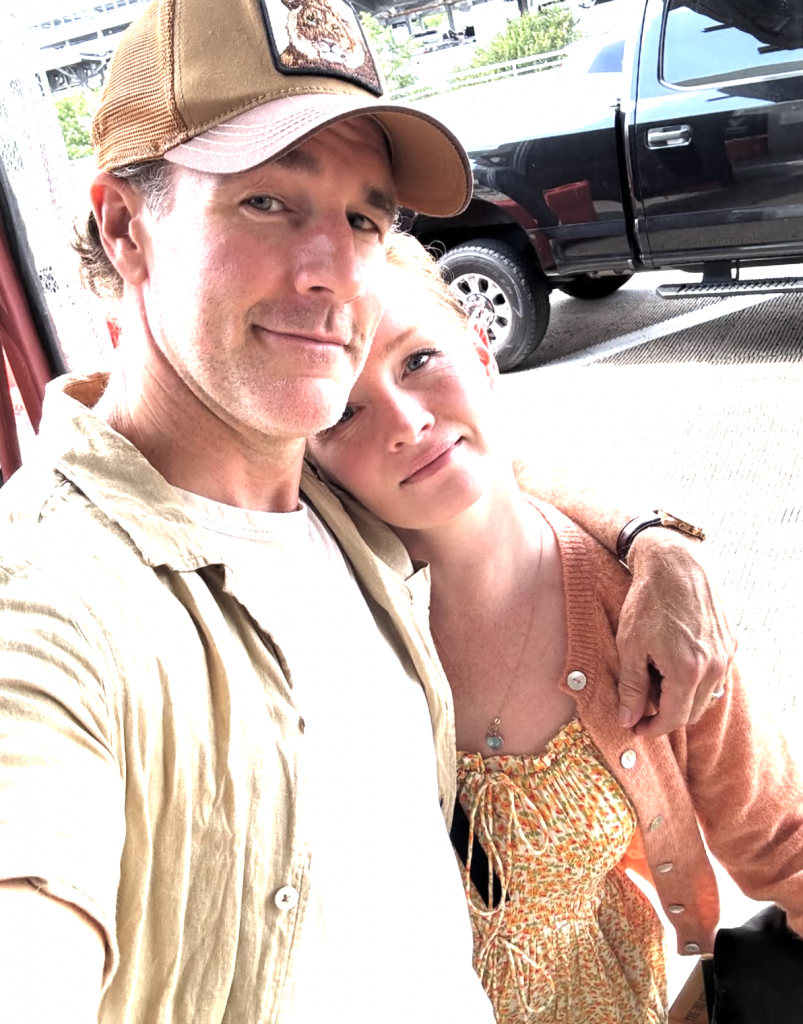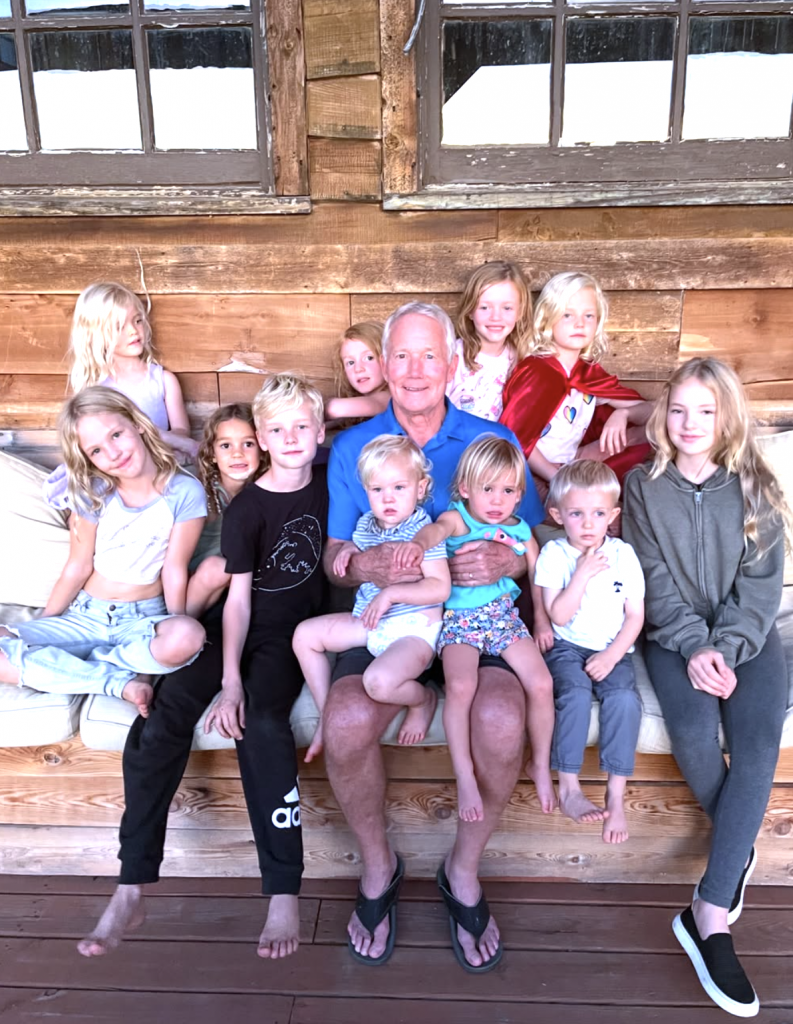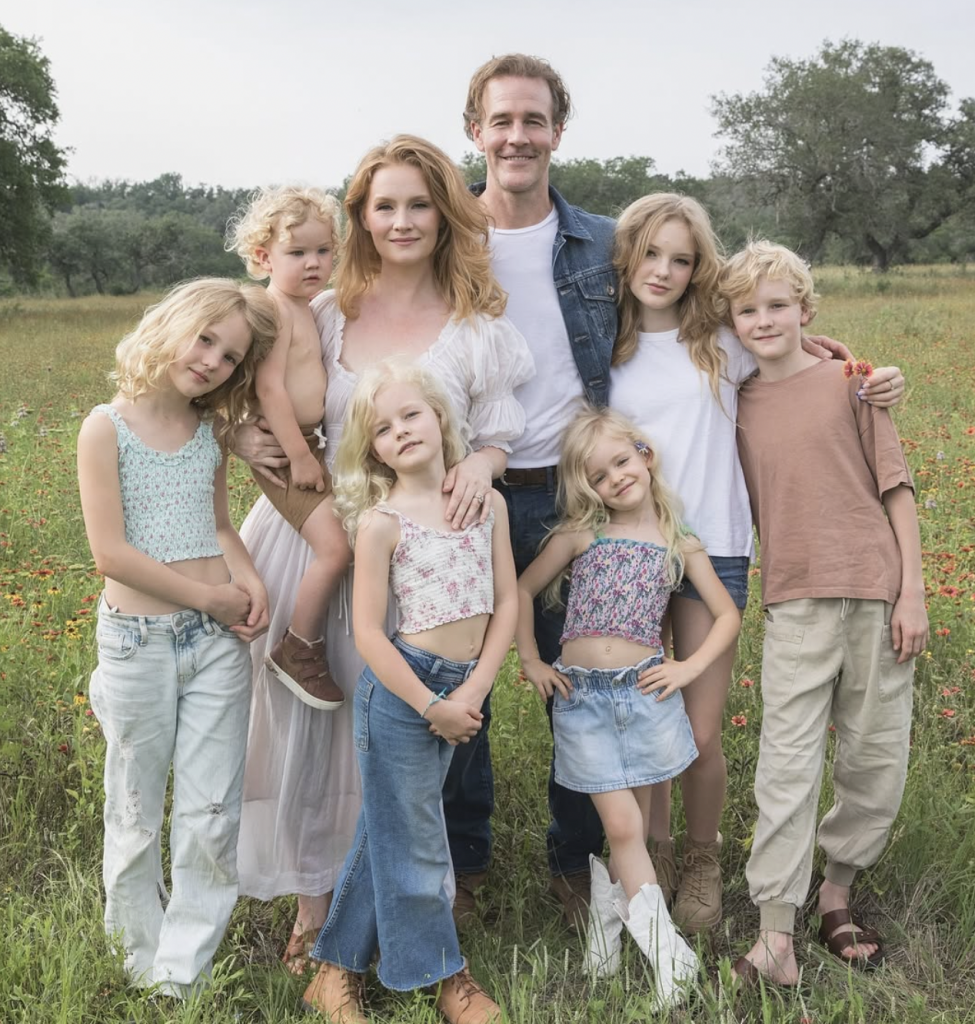Emotional Health During Cancer
- Dawson’s Creek alum James Van Der Beek, 47, is not afraid to show vulnerability when it comes to those who mean the most to him, mainly, his wife, Kimberly, who has been his rock throughout his colorectal cancer journey, following his 2023 diagnosis at age 46. (Colorectal cancer is a type of cancer that starts in the colon or the rectum.)
- While going through cancer, many survivors may need to adjust to a new relationship and/or family dynamic during the life-changing circumstance, and Van Der Beek, going through a challenging diagnosis just a few years after losing his mother, appears to be getting more and more comfortable showing a more vulnerable side, which is a positive and healthy thing.
- Going through cancer can be extremely overwhelming, so having physical and emotional support during your battle is crucial. It’s very important to know your limits on what you can handle — including relationships — during treatment, as everyone’s experience and personal choices are different.
While going through cancer, many survivors may need to adjust to a new relationship and/or family dynamic during the life-changing circumstance, and Van Der Beek, going through a challenging diagnosis just a few years after losing his mother, appears to be getting more and more comfortable showing a more vulnerable side, which is a positive and healthy thing.
Read More
It is commonly known that men, especially those from earlier generations, have felt societal pressure to be tough and stoic, be a provider, and power through any and all curveballs thrown their way. But it’s okay to lean on others in a time of need. Having to be tough all the time can also make someone feel very alone – it is possible to remain strong but not being afraid to ask for help on some of those harder days.
Fortunately, it seems Van Der Beek has had an excellent role model along the way, praising his dad, James, for his “life-saving” support during this challenging time for his family.
“The way you have shown up when I’ve been down and out this year – without us having to ask, without the expectation of even a thank you… has been not just life-saving, but life affirming,” Van Der Beek shared on Instagram in January.

“Watching you evolve, seeing what kind of man and father you are… gives me more confidence in myself than I could ever express.”
“I feel so proud and lucky to have come from you,” he added.
Van Der Beek lost his mom, Melinda, in 2020 at age 70. On the three-year anniversary of her passing, he shared some relatable words about the “emotional rollercoaster” of grief after immense loss.
“It happens at its own pace — and don’t judge the emotions that come up,” he reassured in a soft tone on social media, tagging topics like “#parentlosssupport” and “mental health.”
His parents, who have been described as soul mates, were together for 46 years up until her death.
James Van Der Beek’s Cancer Diagnosis
James Van Der Beek learned he had colorectal cancer in 2024 after getting a colonoscopy. He told PEOPLE in a cover interview that he went and got checked due to his persistent bowel issues.
“I thought maybe I needed to stop coffee. Or maybe not put cream in the coffee. But when I cut that out and it didn’t improve, I thought, ‘All right, I better get this checked out,’” he told the outlet.
While he has not given too many details since his initial diagnosis, aside from sharing many of the emotional aspects, Van Der Beek raved about his family support from the very start.
“I’ve been privately dealing with this diagnosis and have been taking steps to resolve it, with the support of my incredible family,” he had said.

Colorectal cancer happens when polyps are not removed and become cancerous. It can take up to 10 years for a colon polyp to become cancerous, according to SurvivorNet’s medical advisors.
“We know that colon cancers can be prevented when polyps are found early,” Dr. Heather Yeo, a surgical oncologist who specializes in colorectal cancers at Weill Cornell Medicine, told SurvivorNet. “Lowering the screening age helps somewhat with this, but access to care is a real problem.”
Looking for Polyps During Colonoscopy
Dr. Zuri Murrell, a colorectal cancer surgeon and Director of the Cedars-Sinai Colorectal Cancer Center, previously explained the colonoscopy procedure to SurvivorNet.
“When we see a polyp, we actually physically take the polyp out through the colonoscope,” he explained. “What does that mean? That means we basically put a wire through with a little bit of a flange at the end, and we pull the polyp out. Now, note there is no pain with that. Inside the colon, there are no pain fibers. So, there’s no pain.”
The advantage of a colonoscopy is that your doctor can remove any polyps found during the test. Many colon cancers can be caught on colonoscopy before they develop or when the polyps are small enough to be removed without surgery.
The American Gastrointestinal Association lowered the recommended initial age for a colorectal screening from 50 to 45. The U.S. Preventive Services Task Force recommends guidelines that state colon cancer screenings should begin at 45 years old. This is in response to the increase we see in colon cancer diagnoses in younger adults.
However, many insurance companies still do not cover the cost of screenings for those under 50. In the past, the disease had predominantly been found in adults 50 years or older, but for those predisposed to getting it at a younger age, these new guidelines could help catch it earlier.
What Increases Your Risk for Colorectal Cancer?
Certain risk factors can increase a person’s risk of getting colon cancer.
Risk factors to be aware include:
- Age — About 90% of cases are in people aged 50 or older, according to the U.S. Centers for Disease Control & Prevention (CDC). Yet it is possible to get this cancer earlier in life.
- Inflammatory bowel disease — Crohn’s disease or ulcerative colitis can, over time, cause cells in your intestines to turn cancerous.
- Family history — Just under one-third of people who get colon cancer have family members with the disease.
- Genetic mutations — About 5% of colorectal cancers are caused by an inherited genetic mutation that causes syndromes such as familial adenomatous polyposis (FAP) or hereditary nonpolyposis colorectal cancer (Lynch syndrome).
- Sedentary lifestyle — Staying active can lower your risk.
- Diet high in red meat — Regularly eating red meats like burgers and steaks, and processed meats such as hot dogs and bacon might put you at higher risk. Eating more fruits, vegetables, and whole grains instead might lower your risk.
- Being overweight/obese — Having too much weight increases your risk of both getting colon cancer and dying from it.
- Alcohol use — Limiting alcohol to one drink daily for women and two drinks daily for men could help lower your risk.
- Tobacco use — Long-term smokers are more likely to get this cancer than nonsmokers.
Treatment Options for Colorectal Cancer
Though Van Der Beek has chosen to keep the details of his colon cancer journey and treatment process private, it’s important to understand that your doctor has many ways to treat colon cancer, depending on what stage the cancer is, including:
- Surgery
- Radiation therapy
- Chemotherapy
- Targeted therapy
- Immunotherapy
Having a Supportive Partner During Cancer
It’s no secret that fighting cancer can be extremely overwhelming, so having physical and emotional support during your battle is crucial. It’s very important to know your limits on what you can handle — including relationships — during treatment, as everyone’s experience and personal choices are different.
“Going through treatment is a very vulnerable and emotionally exhausting experience,” licensed clinical psychologist Dr. Marianna Strongin wrote in a column for SurvivorNet. “Noticing what you have strength for and what is feeling like too much … [is] extremely important to pay attention to as you navigate treatment.”
Dr. Strongin does note, however, that having people by your side during this “arduous chapter” of your life can be hugely beneficial.
“Studies have found consistently that loneliness is a significant risk factor for physical and mental illnesses and the trajectory of recovery,” she wrote. “Therefore, it will be important that you surround yourself with individuals who care and support you throughout your treatment.”
SN & You Presents Mental Health: Coping With Emotions
When tougher days during cancer send you into a down-spin of emotions, an important way to pick yourself back up is to feel those emotions and let them out.
In this episode of SurvivorNetTV’s series, SN & You, survivors share how they handle their mental health and cope with their emotions after undergoing cancer treatment.
Getting a handle on your mental health is important and processing your emotions is one of the first steps. Cancer survivors say that first you must let the emotions out, find your support system, and live your life.
“People that are strong cry, it’s the weak ones who try to hold it in,” says Evelyn Reyes-Beato, a colon cancer survivor.
In this episode, you’ll hear several cancer survivors talk about their experiences dealing with cancer and navigating life after a diagnosis. Crying and being open with your emotions is part of the healing process.
SurvivorNet has other great mental health resources for you, including more films that will inspire you.
Contributing by SurvivorNet Staff
Learn more about SurvivorNet's rigorous medical review process.

